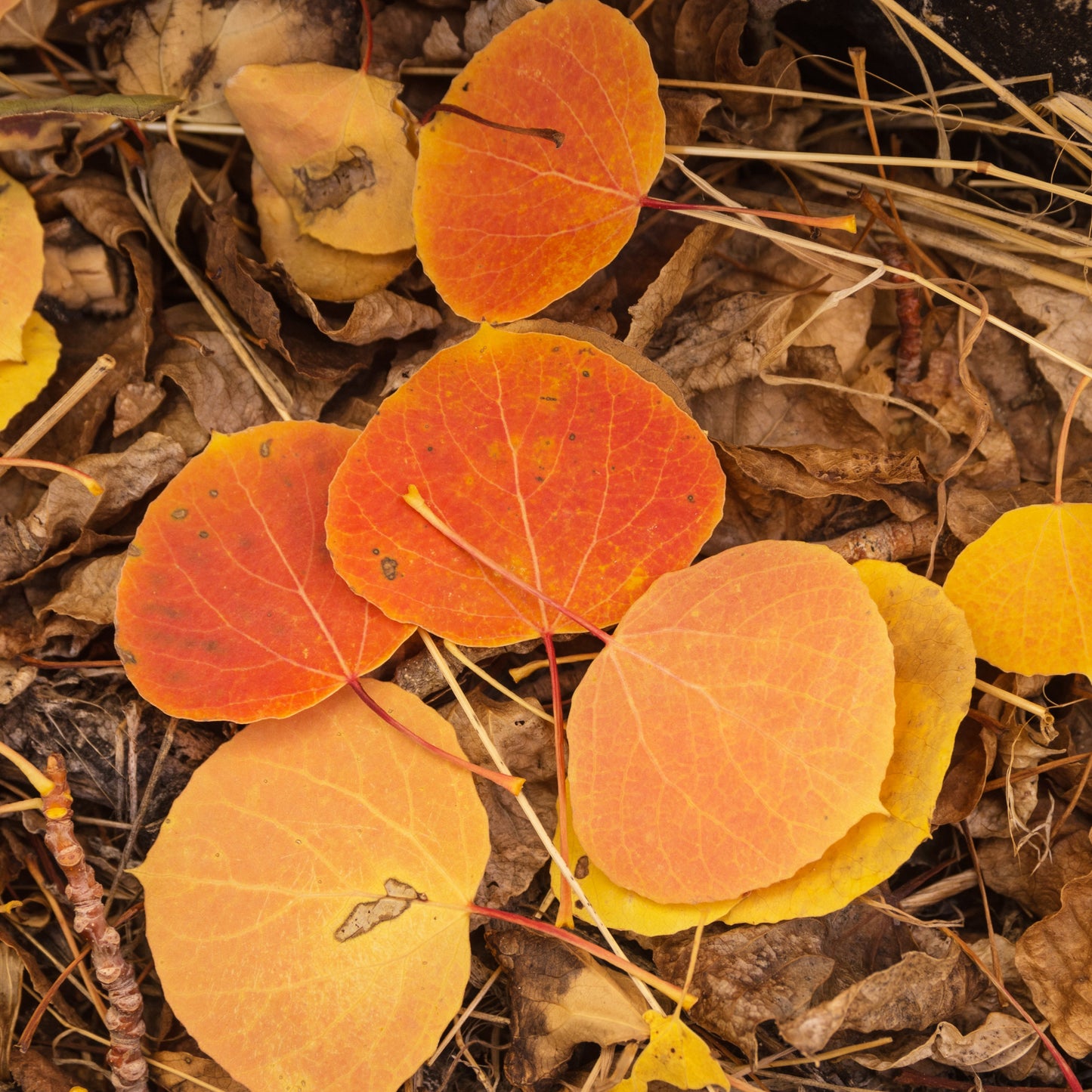Spring Planting Season is Here!! Grow Stronger, Healthier Trees for Less!!
Bare root trees grow faster, cost 50% less, AND establish much better than potted trees. PLUS they leave a much smaller environmental footprint. Order NOW before the season ends!
Quaking Aspen Tree
Quaking Aspen Tree
Couldn't load pickup availability
Populus tremuloides
Quaking Aspen
The Quaking Aspen is a fast-growing, iconic North American native tree celebrated for its fluttering, heart-shaped leaves that tremble with the slightest breeze. This bare root variety lights up landscapes with white bark, golden fall color, and unmatched natural movement.
As one of the widest-ranging trees in North America, the Quaking Aspen is perfect for naturalized areas, reforestation, and high-elevation landscapes where its elegant form and adaptability shine. With its smooth bark, whispering leaves, and dense suckering habit, this tree adds both sound and motion to your garden.
Quaking Aspen (Bare Root) Overview
| Attribute | Details |
|---|---|
| 🌱 Variety | Bare Root |
| 🌿 Botanical Name | Populus tremuloides |
| 🏷️ Common Names | Quaking Aspen, Trembling Aspen, American Aspen |
| 🌳 Mature Height | 40–50 feet |
| 🌐 Mature Width | 20–30 feet |
| 📈 Growth Rate | Fast (2–3 feet per year) |
| ⏳ Lifespan | 40–60 years (individual); clonal colonies can live 1,000+ yrs |
| 🧊 USDA Zones | 2–7 |
| ☀️ Sun Preference | Full sun (essential for best growth and color) |
| 🧱 Soil Type | Moist, well-drained loam or sandy soils |
| ⚖️ Soil pH | Slightly acidic to neutral (5.5–7.0) |
| 💧 Water Needs | Moderate; prefers consistent moisture |
| 🍃 Foliage Color | Light green (summer); brilliant gold (fall) |
| 🌸 Flower/Berry Production | Catkins in early spring; no ornamental fruit |
| 🐝 Wildlife Attraction | Deer, elk, birds, small mammals |
| 🌿 Growth Habit | Upright, rounded crown; suckers to form colonies |
| 🌸 Self-Pollinating? | No – male and female trees are separate |
| ↔️ Spacing | 20–30 ft for specimens; allow room for root suckers |
| 🏡 Landscape Uses | Naturalized areas, woodland edges, reforestation, screening |
| 🧹 Maintenance Level | Moderate |
Environmental Benefits
🍂 Creates moving soundscapes and shade in open landscapes
🦌 Supports native wildlife and pollinators with early-season growth
🌱 Great for reforestation, erosion control, and soil improvement
🌎 Builds long-living clonal colonies for ecosystem stability
Pros & Cons
| ✅ Pros | ⚠️ Cons |
|---|---|
| 🌬️ Iconic fluttering foliage adds motion and charm | 🌱 Aggressive suckering habit can spread beyond planting area |
| 🏔️ Extremely cold-hardy, perfect for northern climates | 🪵 Shorter individual lifespan without clonal colony support |
| 🍂 Brilliant golden fall color with white bark contrast | 📏 Not ideal for small yards or formal gardens |
| ⚡ Fast growth and adaptability | 🐛 Can be prone to pests like borers or canker without good airflow |
| 🧬 Native tree that supports biodiversity | 🌾 Requires space to accommodate colony formation |
Planting & Care Guide (Bare Root)
🛁 Soak bare roots for 6–12 hours before planting
🕳️ Dig a hole 2× wider than the root spread; keep root flare at soil level
🌾 Apply 2–3 inches of mulch to retain moisture and suppress weeds
💦 Water deeply and regularly during the first year
✂️ Prune only to remove dead or damaged branches; avoid topping
🧪 Fertilize lightly in spring if soil is poor; otherwise unnecessary
The Quaking Aspen (Bare Root) is a living, breathing piece of North American wilderness—bringing sound, motion, and golden color to any open-space planting. Whether you're creating a native grove, reforesting a slope, or just looking for a tree that whispers in the wind, this fast-growing beauty offers wild charm and ecological value in every leaf.
Share






